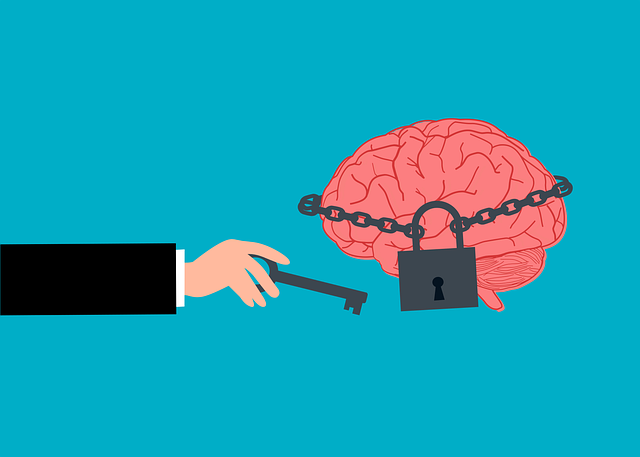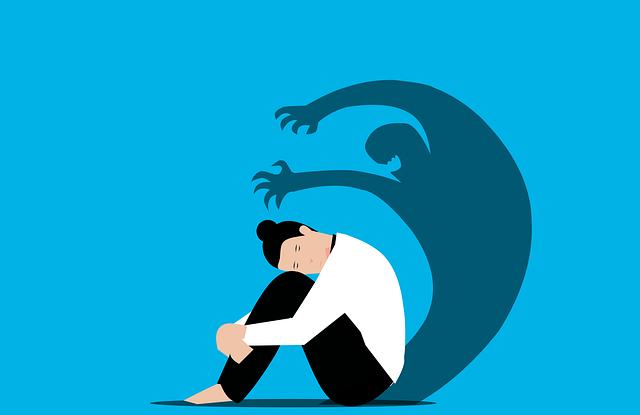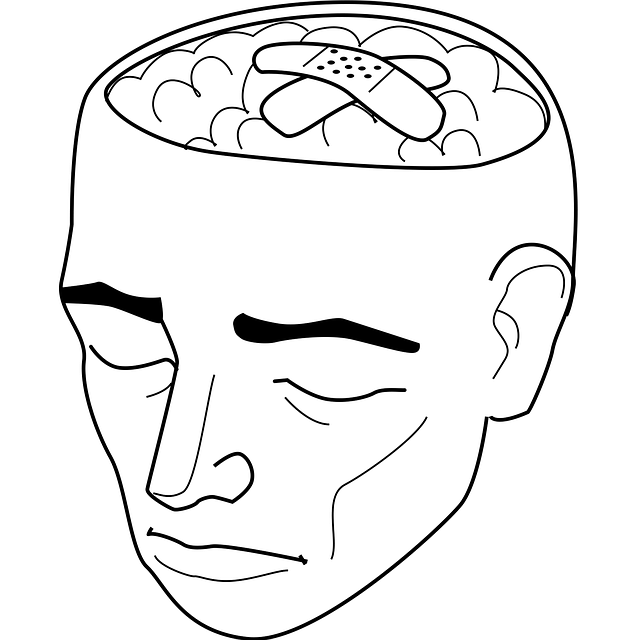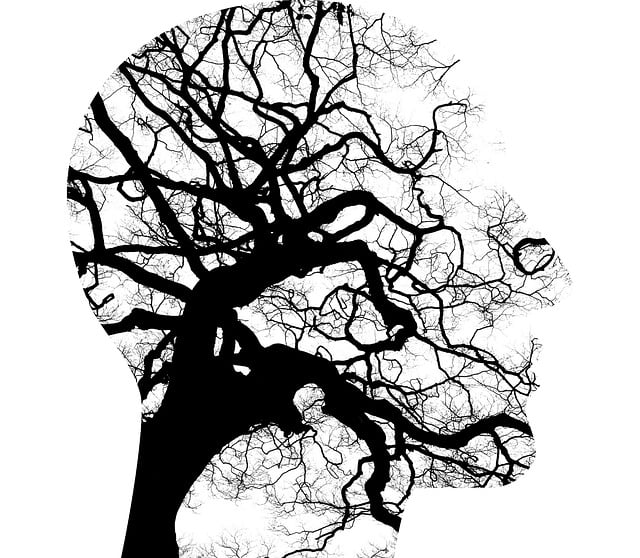Stress, left unchecked, can lead to severe mental and physical health consequences. The article highlights the importance of recognizing these effects and adopting effective stress reduction strategies, emphasizing the role of Lone Tree Suicide Prevention Therapy (LTSPT). LTSPT offers a holistic approach to mental health, combining individual counseling, group therapy, and community outreach to foster inner strength development. Cognitive Behavioral Techniques (CBT), integrated into LTSPT, help manage stress by modifying negative thought processes. Mindfulness practices taught by LTSPT encourage present-moment focus for stress reduction, improving mood, and lowering blood pressure. Additionally, LTSPT promotes healthier lifestyles through public awareness campaigns, emphasizing the interconnectedness of physical activity, balanced eating, quality sleep, and positive thinking in managing stress levels.
Stress reduction is a vital component of maintaining optimal mental health. In this article, we explore various methods to combat stress, from understanding its profound impact on well-being to examining innovative therapies like Lone Tree Suicide Prevention Therapy—a holistic approach that promises transformative results. We delve into evidence-based techniques such as cognitive behavioral therapy and mindfulness practices, alongside lifestyle changes designed to cultivate resilience against life’s pressures.
- Understanding Stress and Its Impact on Mental Health
- Lone Tree Suicide Prevention Therapy: A Holistic Approach
- Cognitive Behavioral Techniques for Stress Reduction
- Mindfulness and Meditation Practices to Calm the Mind
- Lifestyle Changes for a Less Stressed Life
Understanding Stress and Its Impact on Mental Health

Stress is a natural response to demanding situations, but when left unaddressed, it can have profound effects on mental health. It’s essential to recognize that chronic stress can lead to various psychological challenges, including anxiety, depression, and even severe cases like lone tree suicide prevention. Understanding these impacts is crucial for implementing effective stress reduction methods.
The consequences of prolonged stress extend beyond the mind, affecting overall well-being. It can disrupt sleep patterns, impact eating habits, and lower resilience to illness. By adopting strategies that target mood management and build resilience, individuals can mitigate these effects. The Mental Wellness Podcast Series Production offers valuable insights into navigating stress through evidence-based practices, providing tools for better mental health and a more balanced lifestyle.
Lone Tree Suicide Prevention Therapy: A Holistic Approach

Lone Tree Suicide Prevention Therapy takes a holistic approach to address the complex root causes of stress and emotional distress, which can often lead to suicide-related thoughts. This therapy recognizes that every individual’s journey is unique, just like the vast landscape of Lone Tree itself. Thus, it offers tailored support services designed to nurture inner strength development in those facing challenges related to trauma, depression, or anxiety.
The program focuses on empowering clients with emotional regulation skills, helping them navigate life’s twists and turns with resilience. Through a combination of individual counseling sessions, group therapy, and community outreach, this comprehensive method aims to provide the necessary tools for long-term mental wellness. By fostering connections and encouraging open dialogue, Lone Tree Suicide Prevention Therapy becomes a sanctuary where individuals can begin their transformative journey towards healing and hope.
Cognitive Behavioral Techniques for Stress Reduction

Cognitive Behavioral Techniques (CBT) offer a powerful arsenal in the fight against stress and its detrimental effects on mental health. This evidence-based approach focuses on identifying and changing negative thought patterns, behaviors, and emotional responses that contribute to heightened stress levels. By challenging unhelpful cognitive distortions, individuals can develop healthier coping mechanisms. For instance, CBT encourages positive thinking, where one reframes stressful situations as opportunities for growth rather than seeing them as overwhelming threats.
In the context of Lone Tree Suicide Prevention Therapy, CBT plays a pivotal role in equipping individuals with essential coping skills development. Through this therapy, clients learn to assess risk factors and triggers associated with stress, enabling them to implement effective stress reduction strategies. This proactive approach not only enhances overall well-being but also serves as a crucial component in suicide prevention efforts for those at high risk.
Mindfulness and Meditation Practices to Calm the Mind

In today’s fast-paced world, stress has become an all too common companion. However, mindfulness and meditation practices offer a calming antidote. These techniques encourage individuals to focus on the present moment, observing their thoughts and feelings without judgment. By cultivating awareness of one’s breath, bodily sensations, and surroundings, minds can find solace from the constant stream of worries and anxieties.
Lone Tree Suicide Prevention Therapy highlights the power of such practices in fostering mental well-being. Regular meditation can reduce stress hormones, lower blood pressure, and improve overall mood. Moreover, communication strategies taught through these practices enable individuals to express their feelings more effectively, enhancing relationships and social support—key components of a robust community outreach program implementation. Incorporating mindfulness into daily routines can be a simple yet effective step towards better mental health, even when navigating challenging life circumstances or advocating for crucial Mental Health Policy Analysis and Advocacy.
Lifestyle Changes for a Less Stressed Life

Adopting a healthier lifestyle can significantly contribute to stress reduction and overall well-being. Regular physical activity is an excellent way to manage stress levels; it releases endorphins, which act as natural mood boosters. Incorporating a balanced diet rich in fruits, vegetables, whole grains, and lean proteins can improve energy levels and mental clarity. Adequate sleep is another cornerstone of stress management; prioritizing quality rest helps the body recover and prepares it for the next day’s challenges.
Additionally, cultivating positive thinking habits can drastically impact one’s stress perception. Simple practices like meditation, deep breathing exercises, or even engaging in hobbies can help calm the mind and foster a sense of tranquility. Public awareness campaigns play a vital role in promoting these stress reduction methods, educating folks on the importance of self-care and providing tools to navigate life’s challenges with resilience. Remember, Lone Tree Suicide Prevention Therapy offers valuable resources for those seeking support during stressful times.
In exploring effective stress reduction methods, from understanding the profound impact of stress on mental health to adopting holistic approaches like Lone Tree Suicide Prevention Therapy, cognitive behavioral techniques, mindfulness practices, and lifestyle changes, it’s evident that a multi-faceted approach is key. By integrating these strategies into daily routines, individuals can cultivate resilience against stress, enhance overall well-being, and lead more fulfilling lives. Remember, when stress becomes overwhelming, seeking professional help, like that offered through Lone Tree Suicide Prevention Therapy, can be a vital step towards finding balance and inner peace.













